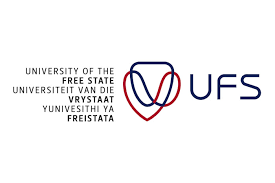University of the Free State: Plant-based medicine a possible cure for post-COVID-19 tuberculosis
After putting together a multicentre-controlled clinical trial for a plant-based product to confirm it as a treatment for COVID-19 and to be registered as a medication for this condition, Prof Motlalepula Matsabisa – Professor and Director of Pharmacology at the University of the Free State (UFS) – and his team will now look to do the same for post-COVID-19 patients presenting with tuberculosis (TB).
During his inaugural lecture (5 October 2022) themed: Indigenous Medical Knowledge – What have we learnt and What can we achieve: Solving Past and Present Health Challenges, Prof Matsabisa, Deputy President of the South African Society for Basic and Clinical Pharmacology (SASBCP), said more people who previously suffered from COVID-19 are now presenting with TB.
During his lecture, the traditional medicine expert took attendees on a journey of how medicine can be developed from a molecule or a mixed herbal preparation, and also reflected on his endeavours to find safe, effective, and better acting medicines.
Background on how medicines are made
“Plants play a critical role in the development of pharmaceuticals, as they may provide new drug leads, but could also be developed as vaccines. Plant genes can also be used as diagnostics. When we talk about drugs from medicinal plants, we are talking about those medicines that contribute to the treatment of about 90% of all known human diseases, as well as recognising that these medicines make up close to a third of all prescription medicines.”
“We are talking about drugs from plants that have stood the test of time. When we are sick, we sometimes do not think where these medicines come from. When you have a headache, you don’t think that the aspirin comes from the wild willow. Digoxin or Digitalis for heart failure comes from Digitalis purpurea or foxglove plants. Metformin (for treating type 2 diabetes) comes from Galega officinalis, known as French lilac or goat’s rue; morphine from Papaver somniferum; cocaine from Erythroxylum coca and Erythroxylum novogranatense; Theophylline – a medicine for asthma – from the Theobroma tree; plant medicines are used during organ transplant such as heart or kidney transplants; Cyclosporine is derived from Tolypocladium inflatum – a natural product,” he said. “Almost 80% of cancer medicines come from plants, including Paclitaxel (Taxol) from the Pacific yew tree (Taxus brevifolia), vincristine and vinblastine from the Madagascar periwinkle (Catharanthus roseus),” he added.
According to Prof Matsabisa – who recently gave a keynote speech on Indigenous Knowledge Systems (IKS) and Health during a session at the eighth edition of the UNGA77 Science Summit around the 77th United Nations General Assembly (SSUNGA77) – there are 360 000 species of plants globally. Only 10% have been well researched, and about 10% of those global species are indigenous to South Africa. Medicines from plants have contributed and participated in past pandemics.
Developing medicine for malaria
Prof Matsabisa also briefly explained his work on developing medicines for malaria – a neglected Third World disease that kills more people than HIV/Aids. According to Prof Matsabisa, traditional communities in Peru, South America, have known for many years that the bark of the cinchona tree is used for fever, and it because of this bark that we still have quinine today and Chloroquine is still being prescribed for malaria. In a similar fashion, traditional Chinese medicines also used a plant called qinghaosu or Artemisia annua, from which the current antimalarial drug, Artemisinin and its derivatives, Artesunate and Artemether, are still the mainstay of malaria treatment.
“In this regard, we worked with a plant called Dicoma anomala or hloenya in Sesotho – a common traditional medicine whose roots are widely used in traditional medicine. I looked at the effects of the small roots and we did some extraction in the lab and tested it on the malaria-causative agent, the Plasmodium falciparum parasite. We found these extracts to be as potent as Chloroquine, the current standard antimalarial drug.”
“Further purification of those compounds led us to identify two sesquiterpene molecules. These molecules were as effective as Chloroquine. The molecules and how they are extracted and later developed in a lab, have led to patents in South Africa, the United States of America, ARIPO, Nigeria, Madagascar, Europe, Tunisia, and China.”
COVID-19 and responding to it
Many of the pandemics are due to bacteria or viruses, says Prof Matsabisa, and many of the drugs for bacterial or viral infections are plant-based. He went on to explain their multicentre-controlled clinical trial for a plant-based product, PHELA, as an immune modulator to modulate cytokine storm due to COVID-19, and also to restore and normalise the patient’s immune system.
“When we applied to the South African Health Products Regulatory Authority (SAHPRA) for the clinical trials, they asked if we could test PHELA on the different variants of concern in South Africa. We tested it on the Wuhan variant and two South Africans variants – the Beta variant that was responsible for the first wave, and the N5011Y.V2 variant. The in vitro tests showed that the traditional medicine was better suited for the South African variants of COVID-19. We could have saved lives if we had acted quickly.”
Prof Matsabisa is Director of the African Medicines Innovations and Technology Development Platform (AMITD) – the TIA-UFS IKS Platform, a guest professor at the Beijing University of Chinese Medicine in Beijing, China, and Deputy President of the South African Society for Basic and Clinical Pharmacology. He is Chair of the WHO Regional Expert Committee on Traditional Medicines for COVID-19, a member of the Plant-Based Medicine Task Force, the Medical Therapies Commission of the ILAE, technical expert member of the United Nations International Narcotics Control Board (INCB), and a member of the Ministerial Advisory Committee on Traditional Medicines (national Department of Health).

